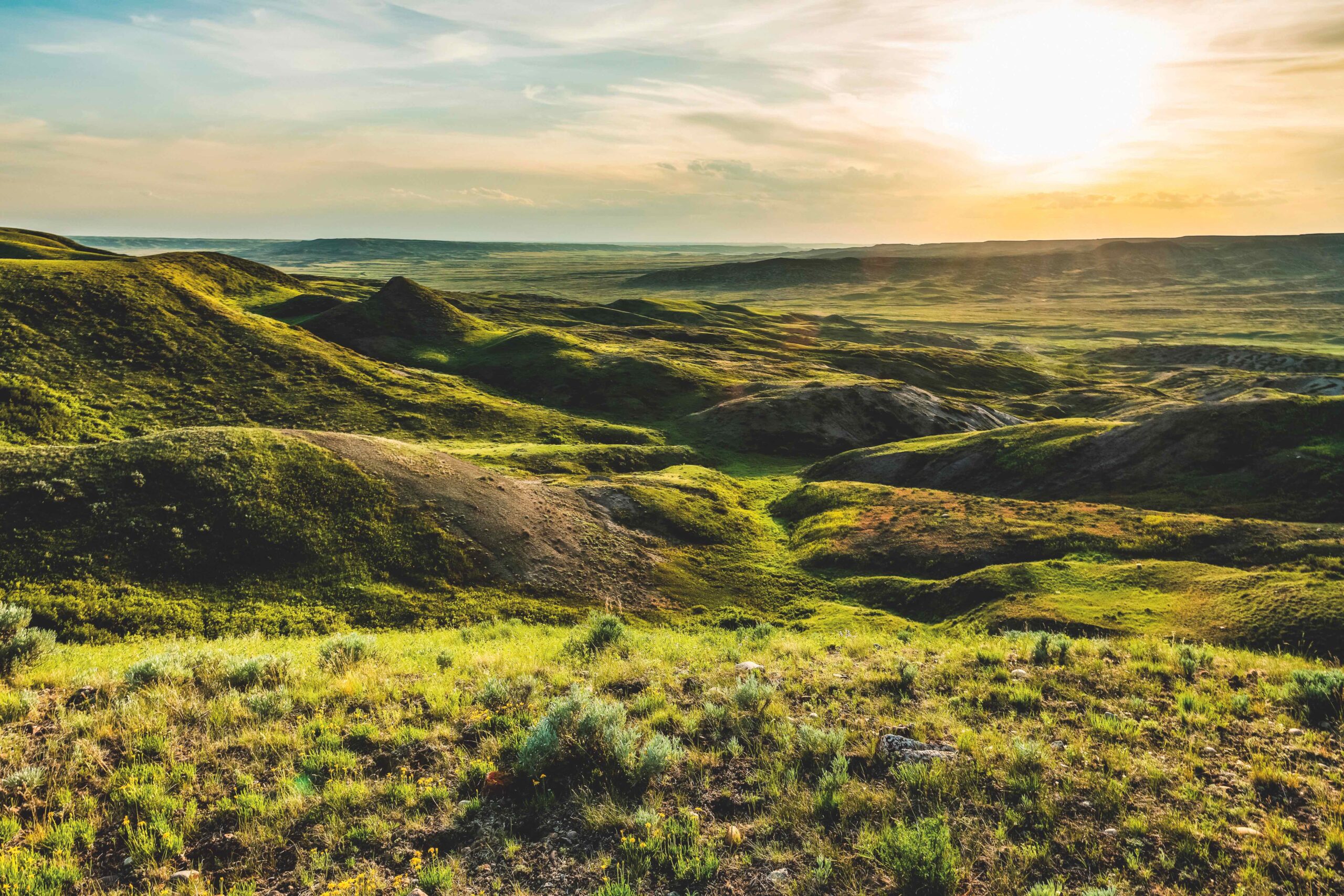Every morning last October, well before sunrise, acoustic ecologists Matt Mikkelsen and Jonathan Kawchuk would load up their recording equipment and head along the narrow trails snaking through Grasslands National Park in southern Saskatchewan. The pair were on a quest to find peace and quiet. Bird song and the rustle of prairie grass in the wind were fine, of course, but any type of human-made noise — from the road, a jet flying overhead or, say, a nearby mining operation — was strictly unwanted.
They were successful. And based largely on their work, it looks promising that sometime in the not-too-distant future, Quiet Parks International will officially acknowledge that Grasslands is the first park in Canada to have met their standards to be designated a quiet park, an honour it will share with parks in Ecuador, Poland and Namibia.
“Quiet is a human right,” says Gordon Hempton, the founder of Quiet Parks International, but it’s a tenuous one at best. Take, for instance, what Quiet Parks calls the “gold standard” for quiet: 15 minutes without interruption from human-made noise pollution. Fifteen minutes! By these standards, you can see why Hempton describes Grasslands — located far away from human clatter and racket — as “absolute world class.”
For many people, quiet was one of the strange benefits of the pandemic’s early days. I thought I already knew silence living out in the country, but when everything was shut down, the world got even quieter. There were no airplanes in the sky, fewer cars rumbling along our gravel road, and like many others, I heard more birdsong. Without any competing mechanical din, the birds in our area truly came alive.
To be sure, I do like some noise — kids in a playground, rock guitar, the thump-thump-thump of an old motorcycle. But in the world we’ve created, it just doesn’t stop. And to make matters worse, we already know too much noise is bad for us: it damages our hearing, messes with our sleep and can cause cardiovascular problems, while studies show that its effects are especially hard on kids.
More on Broadview:
- 6 books about the climate crisis that offer hope
- Japanese method can grow forests 10 times faster — and help heal our planet
- She felt disconnected from Christ. Outdoor church brought her back.
“There are a lot of reasons why people are resistant to quiet,” says author Kirsteen MacLeod. Once upon a time, as she recounts in her book In Praise of Retreat, she was one of those very people. Confronted with a quiet natural scene, she writes, “I didn’t really know how to fill up the silence.” But given time, she discovered, “there’s a lot going on.” That was the idea behind 4’33, composer John Cage’s famous “piano” piece where a performer sits down at the piano for that amount of time — and doesn’t play. Cage wanted to encourage an audience to really listen to their environment.
Quiet isn’t just an absence; it can be “a place of possibility,” says MacLeod. The place where we can hear ourselves think. “Great new ideas, that’s what comes back from silence.” That’s what the great spiritual leaders knew, what Henry David Thoreau and Emily Dickinson knew, too. While some people might think it’s just a way to escape life, MacLeod says, “I think staying distracted is a far more common form of escape.”
In its own way, Grasslands serves as an apt metaphor for the quiet it offers: it’s out of the way, not everyone seeks it, but if you get there, you’ll be rewarded.
***
Ian Coutts is a writer and editor in Kingston, Ont.
CORRECTION: A previous version of this column stated that Quiet Parks International had named Grasslands National Park the first quiet park in the country. The park has not yet been recognized. This version has been corrected.
This column first appeared in Broadview’s September 2022 issue with the title “Enjoy the silence.”















